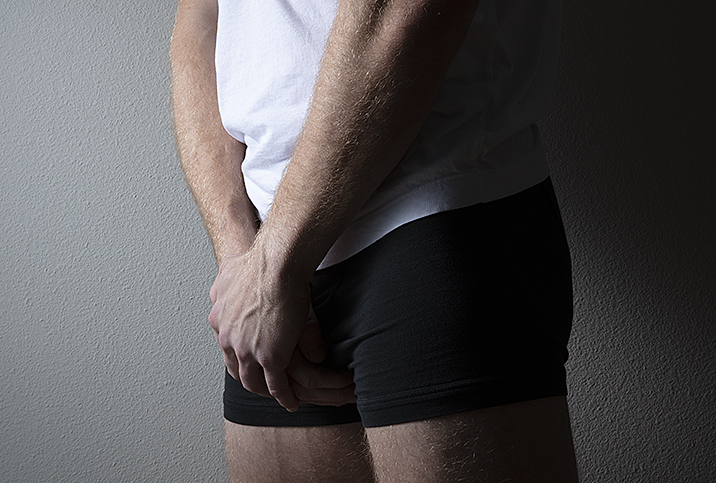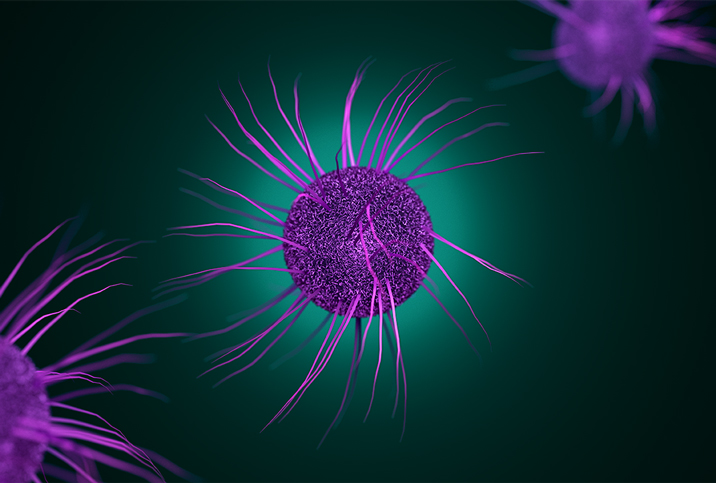Treatment and Recovery From Gonorrhea and Chlamydia

Chlamydia and gonorrhea are both common sexually transmitted diseases (STDs) that affect millions of people worldwide. While both diseases are generally easy to treat, waiting too long could lead to dangerous complications. It's important to know the facts about chlamydia and gonorrhea so you can easily treat them and continue to have a healthy and happy sex life.
Chlamydia is caused by the chlamydia trachomatis bacteria and can affect people of all genders. The infection can affect the penis, vagina, anus and throat.
The bacteria responsible for a gonorrhea infection is the Neisseria gonorrhoeae bacterium and, like chlamydia, can affect anyone having unprotected sex. While gonorrhea typically affects the genitals, it can infect the rectum, throat, eyes and joints, as the bacteria searches for anywhere warm and moist.
Both STDs are typically found in young adults under the age of 25 and men who have sex with other men. Risk factors include unprotected sexual activity, sex with multiple partners and a history of STDs.
Symptoms and diagnosis
If you think you might be infected with chlamydia or gonorrhea, it's important to schedule an appointment to get tested. While many people see no symptoms from either of these STDs, there are some things to look out for.
Symptoms of gonorrhea include:
- Abnormal, pus-like penis discharge
- Painful urination
- Testicular swelling or pain
- Increased vaginal discharge
- Abdominal or pelvic pain
- Vaginal bleeding between periods
- Vaginal bleeding after intercourse
- Anal itching or pus-like discharge
- Rectal bleeding
Symptoms of chlamydia include:
- Penis discharge
- Itching or burning near the penis opening
- Burning with urination
- Testicular pain and swelling
- Rectal discharge, pain or bleeding
- Abnormal or strong-smelling vaginal discharge
- Pain during sexual intercourse
- Lower abdominal pain
- Fever or nausea
- Bleeding between periods
- Bleeding after sex
Again, it's important to remember many infected people will not experience any symptoms of gonorrhea or chlamydia. If you have recently engaged in unprotected sex, please contact your doctor to set up an STD screening, or visit another place that provides STD testing, such as Planned Parenthood.
Testing for both gonorrhea and chlamydia is relatively simple and accessible. You can be tested at your doctor's office, clinic, health center--or even your home with a home STD test. The usual diagnostic method is a urine test, a noninvasive screening in which you pee into a sterile cup. That selection is then sent to a lab for analysis, where they will check for bacteria indicative of STDs.
Gonorrhea and chlamydia can additionally be tested through a blood test or a swab test, where the medical professional will swab your cheek, penis, vagina or rectum and send the sample to a lab.
Regardless of how, be sure to get a test after introducing a new sexual partner into the mix, and test regularly if you're having unprotected sex or sex with multiple partners.
Treating chlamydia and gonorrhea
Both gonorrhea and chlamydia are relatively easy to treat. If you test positive for either STD, your doctor will typically prescribe antibiotics either in one dose or multiple doses over the course of five to 10 days. Infections typically clear in a week or two after treatment begins, but absolutely take the entire course of antibiotics, even if you think your symptoms have cleared. If you are worried about prior issues with antibiotics, talk to your doctor—there are many equivalent alternative antibiotics/treatments that may be safer.
While the treatment for chlamydia—and most strains of gonorrhea—is straightforward, some forms of gonorrhea can be more complicated. Because of the prevalence of the disease, some strains are mutating and becoming resistant to antibiotics. This creates the possibility of gonorrhea becoming a superbug in the near future, which may lead to more serious outcomes for those infected and for society, so it's important to take your treatments to completion and try to prevent becoming reinfected.
It is possible to be infected with gonorrhea and chlamydia at the same time. In fact, some sources indicate it's likely to test positive for both STDs if you test positive for one. In those cases, your doctor may prescribe additional medication.
You should abstain from having sex during treatment because the infection can still be passed on until you test negative for gonorrhea and chlamydia. Also, keep in mind it's possible to get reinfected with both STDs if you continue to have unprotected sex. While they are generally easy to treat, you don't want to get repeated infections, which can cause scarring and possibly pregnancy complications.
Long-term effects
Left untreated, chlamydia and gonorrhea can both lead to serious health complications in men, including infection of the testicles and prostate glands. In women, both STDs can lead to pelvic inflammatory disease (PID), infertility and ectopic pregnancy, due to scarring of the fallopian tubes. Both men and women can suffer reactive arthritis and joint pain.
Pregnant women should be extra diligent about testing, as STDs can cause serious complications during pregnancy and be passed on to a newborn baby. Untreated chlamydia has been linked to preterm labor and low birth weight. Untreated gonorrhea has been linked to similar pregnancy issues, as well as miscarriages. Babies exposed to either STD can also develop lung and eye infections.
Recurrence and prevention
Unfortunately, you can be reinfected with both gonorrhea and chlamydia at any time. Even while undergoing treatment, you can get both STDs again if you continue to engage in high-risk sexual behavior.
While abstinence is the only 100 percent way to prevent being infected with gonorrhea and chlamydia, that is not always a realistic option. You can, however, make safe choices while having sex to help you prevent STDs.
Methods of prevention include wearing a condom (or using some sort of barrier method) while having sex, limiting your number of sexual partners, and communicating with your partner(s) about testing. Finally, be sure to get tested regularly. Testing is the best way to keep yourself and your partner(s) safe and healthy.


















